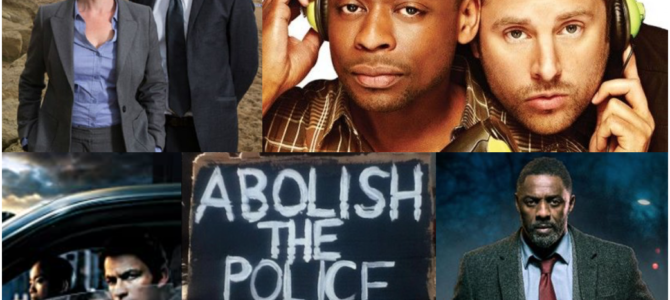As the protests condemning the tragic death of George Floyd continue and the opportunistic riots rage on, the media has turned against the entire concept of the police with a vengeance. As such, several media outlets have decided to attack a staple of the American television landscape – police procedurals.
With recent unjust demonization of the police as a whole becoming a popular political stance from the woke crowd, their positive portrayal on television has come under fire.
Some have argued that the issue with this sub-genre of shows is their focus on the perspectives of their police protagonists at the expense of other voices. Despite this criticism being demonstrably untrue, it also is wholly invalid. The plurality of shows hyper-focus on the perspectives of the people they follow, regardless of genre.
That being said, there are several examples of law enforcement focused shows that highlight the perspectives of the criminals they chase or the communities they serve. “White Collar” focused on the professional relationship between an FBI Agent and a criminal informant, the latter who is the protagonist. “Broadchurch” focused as much on the eponymous town and its residents as it did the central murder investigation.
“The Wire” explores in raw and dark detail the problems with the police alongside their benefits, with both cops and drug dealers as sympathetic main characters. The show included an innocent black man killed by a white cop who faced professional but no legal repercussions, attempts at community-based solutions, and many instances of police brutality. Further, the entire premise of the show centers around an illegal wiretap.
Others have criticized the realism in the shows, citing an unrealistic case closure rate and a brushing over of any negative actions that occur in real life policing. Where is it written that sitcoms and TV dramas are supposed to be realistic? I challenge you to hold our most beloved series to the test of reality.
Twenty-somethings in New York City live in palatial apartments despite seemingly never going to work. High schoolers act like sexually liberated and scheming adults living in a parent-free and homework-free world. People in the government are well-intentioned idealists who just want to make a difference. Why should cop shows to be held to a higher standard?
Of course a show which predicates each episode or season on solving a mystery ought to end with some resolution. And, for the most part, people don’t tune into mystery shows or police department sitcoms to experience realism, but rather escapism. The happy ending is part of the deal. A major aspect of these shows’ appeal is both the excitement of attempting to solve the case alongside the characters and the catharsis of witnessing justice being done as the case ends.
If viewers wish to see actual crimes being solved in a realistic manner, there are documentaries and the news. Unlike the Washington Post, I have faith that TV viewers are aware that their favorite shows are dramatized, even the more grounded and seemingly realistic ones.
The Washington Post references a cost in ratings, but the financial impact was minimized to having to invest in new series to replace the plethora of crime dramas and police comedies. This minimizes the severe economic effect that eliminating these programs would have on the networks, as shows centering around the police make up not just a large percentage of the television offerings, but also a majority of the most watched shows.
According to Neilson ratings, 9 of the top watched 20 TV shows in 2019-2020 are focused on crime fighting, with “NCIS,” “FBI,” and “Blue Bloods” in the top five accompanied only by football. Further, five of the top ten longest running, prime time scripted TV shows center around law enforcement, including 21 seasons and counting of “Law and Order: SVU” and 20 seasons of both “Gunsmoke” and “Law and Order.”
There’s a reason there are seemingly infinite police procedurals on TV: people watch them. There is a set formula and it works. With the right characters and set up, cop shows can be overwhelmingly entertaining. And, unless you’re someone who now hates the institution of the police and unduly lumps together the good, hardworking men and women and the bad, there is something for everyone.
“Psych” and “Monk” offer goofy comedies with quirky characters and episodes that are equal parts suspenseful and hilarious. “Broadchurch” and “Luther” are brooding, character-driven drama with excellent performances and excellent twists. “Blue Bloods” focuses more on the interpersonal dynamics of a family of detectives and district attorneys. “The Wire” offers a violent, broad take on some of the issues plaguing the attempts to fight the war on drugs. “Sherlock” is a sharply written take on the famed detective.
These and countless other series are excellent parts of the television landscape, and many more clever, fun shows are on the way to entertain and excite viewers. It’s ridiculous to write off the entire sub-genre because it positively portrays a group with a few bad (and many great) people.









